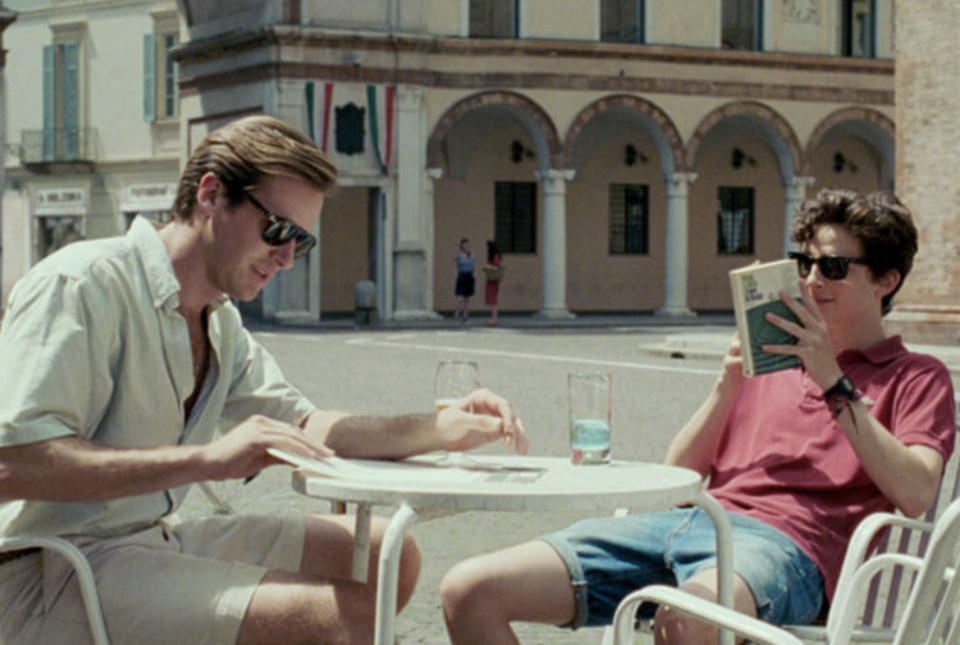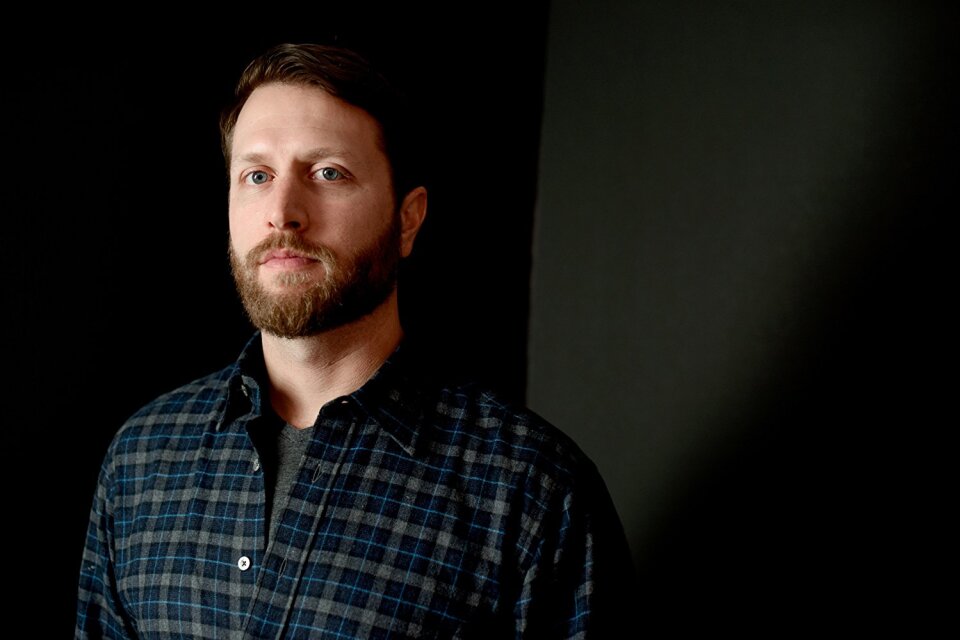How much does The Peacock Network have riding on the Winter Games? A lot.; "The Trade" is Showtime's bracing documentary series about the opiod epidemic; James Ivory's screenplay for "Call Me By Your Name" could finally give him his first Oscar.
'Call Me By Your Name' screenwriter wanted to tell a gay love story with parental acceptance
At 89 years old, James Ivory's screenplay for “Call Me By Your Name" has brought renewed interest in this filmmaker whose career spans decades.
The film has recently been awarded top honors by the Los Angeles Film Critics Association and been nominated for six Independent Spirit Awards.
Directed by Luca Guadagnino, "Call Me By Your Name" tells the story of a summer romance between a teenage boy named Elio, played by Timothee Chalamet, and Oliver, a grad student played by Armie Hammer.
It's not the first gay love story Ivory has told on screen. That was his 1987 film “Maurice” based on an E.M. Forster novel starring Hugh Grant and James Wilby.
Together with his longtime collaborators – producer Ismail Merchant and screenwriter Ruth Prawer Jhabvala – Ivory brought many beloved books to the screen. They famously clashed with Harvey Weinstein over the edit of their 2000 film “The Golden Bowl."
Ivory has also earned three Academy Award nominations for directing the films "A Room With a View," "Howard's End" and "The Remains of the Day." But he has yet to win an Oscar.
When James Ivory spoke with John Horn about his work on "Call Me By Your Name" he stressed the importance of the relationship that the Elio character had with his parents who were utterly accepting of their son's sexuality.
Below are some highlights from that conversation including his thoughts on what transpired with Weinstein and "The Golden Bowl."
INTERVIEW HIGHLIGHTS
On his desire to have both of the parents in "Call Me By Your Name" accept their son's sexuality:
Of course the father speaks as a very wise parent and not someone bound up with all kinds of morality and religion and so forth. But just a person who was willing to accept what life brings and look at it in the best possible way. Today you wouldn't be surprised if one of your parents suddenly decided that they were going to change sex and get married to someone else and all that sort of thing. It happens every day practically. But in the 1980s, that was not true. In the 1980s — and it's just about that time that the story is set — there was the beginning of the AIDS crisis and epidemic.
On why he felt it was important that the final scene between Elio and his father go on so long:
...the scene between the father and the son at the end of the film when the son comes back sad after seeing Oliver go and then the father talks to the son in a very long scene. Much longer than you normally have at the end of a movie. Usually at the end of a movie, if you have two characters who go on for a good ten minutes in dialogue, that's not something you normally do. That would be a fatal kind of thing to do at the end of the film. In this case however, I felt we needed all of that, and we ought to have it and the story needed it.
On how that scene was wish-fulfillment:
I could never have a conversation like that with my father. My father could never, ever... being of the generation — he was born in 1892 — he was of a generation that could not speak of emotional things at all. It was impossible. If he tried to, he would tear up. Today, parents can speak about practically anything.

On his clash with Harvey Weinstein about his 2000 film "The Golden Bowl:"
We bought it back. It was the craziest thing we ever did in our entire career. We bought it back for $4 million. It almost broke us. And yeah, he wanted to do all sorts of things to it and make all kinds of cuts. We weren't going to do those things that he wanted us to do. He said, All right, I'll release it but we'll release it straight to television. We won't play it in theaters. We said, Well, we'll buy it back in that case, which we did.
On a previous clash with Weinstein where Paul Newman stepped in:
Before that, we'd made two films with him. "Mr. & Mrs. Bridge." And he was trying to bully us on that. But there we had a powerful ally who was Paul Newman. Paul Newman said, I'm gonna do press for the film that Jim, Ruth and Ismail made, and not for some other thing.
'The Trade' examines the heroin epidemic from the inside out
Access is everything to Matt Heineman. The filmmaker and his crew spent months weaving themselves into the daily lives of drug addicts, their families, police officers and cartel members to make "The Trade." The five-part docuseries provides an intimate look at both the micro and macro devastation of the heroin epidemic.
It shows addicts shooting up, lying to their families and suffering the brutal pangs of withdrawal as their loved ones try desperately to help them. "The Trade" also deconstructs the shadow economy of drug trafficking from poppy growers in Guerrero, Mexico to dealers in Columbus, Ohio.
Developing rapport and trust was vital for Heineman, who made his name with "Cartel Land," a 2015 documentary about Mexico's drug war. He didn't simply want to tell this story. He wanted to make a difference.
"The Trade" airs Friday nights on Showtime.

Interview Highlights
How Heineman was able to convince addicts to appear on camera:
I think people want to be understood. People want to be heard. Especially people that are marginalized or under stress. They want people to understand what they're going through. And I think in these discussions with folks like John, who are addicted to heroin, part of that discussion is that by taking part in this show, hopefully their story can help thousands and thousands of others that are trapped in this cycle.
On how he cultivates trust with his subjects:
I didn't want to make this show with professors in a university talking about this issue from the outside. I really wanted to get dirty, get right in there up close and personal. That happens by spending weeks or months with characters and developing a deep, deep rapport. And often becoming a part of the fabric of their daily lives so they don't really worry about you being there or care that you're there. You're just part of their daily existence. It's really, really important when you're dealing with people in such difficult situations to be empathetic. And to be honest with you're intentions.
On whether there's something in the American psyche that makes us inclined toward addiction:
The drug is much more valuable in the U.S. than it is in Mexico, so the cartels try to get it out of Mexico as fast as possible. They would much rather sell the drug to an addict in Atlanta than they would to an addict in Guerrero. In certain places there's sort of an unspoken rule that you don't sell within your community. There's a huge culprit here, and that's the pharmaceutical industry. So often we see with these addicts, that they start with a knee injury, arm injury or dental surgery. It starts with basic opiates that they're supposed to be on for a couple of days, and then that turns into an addiction.




